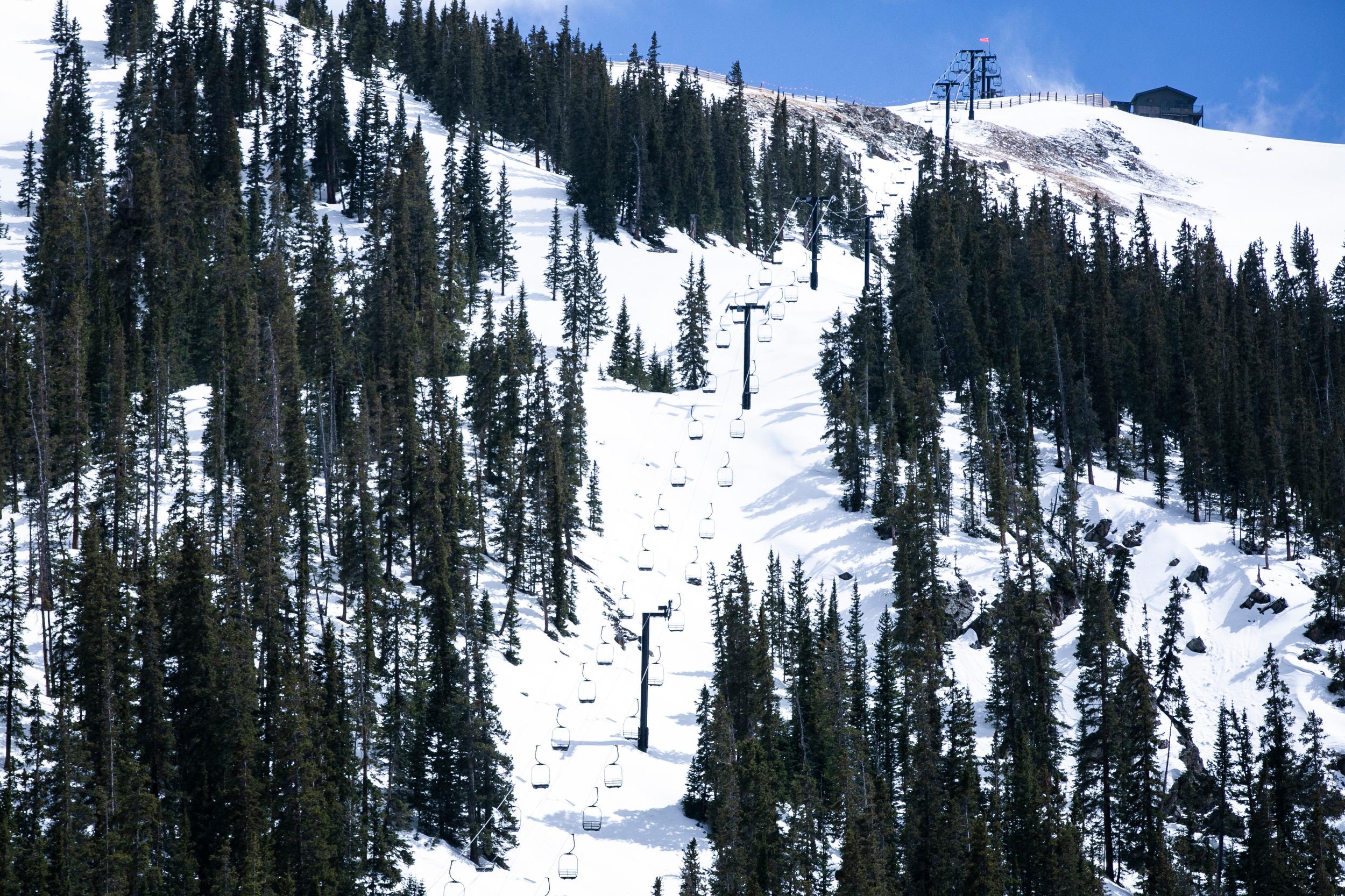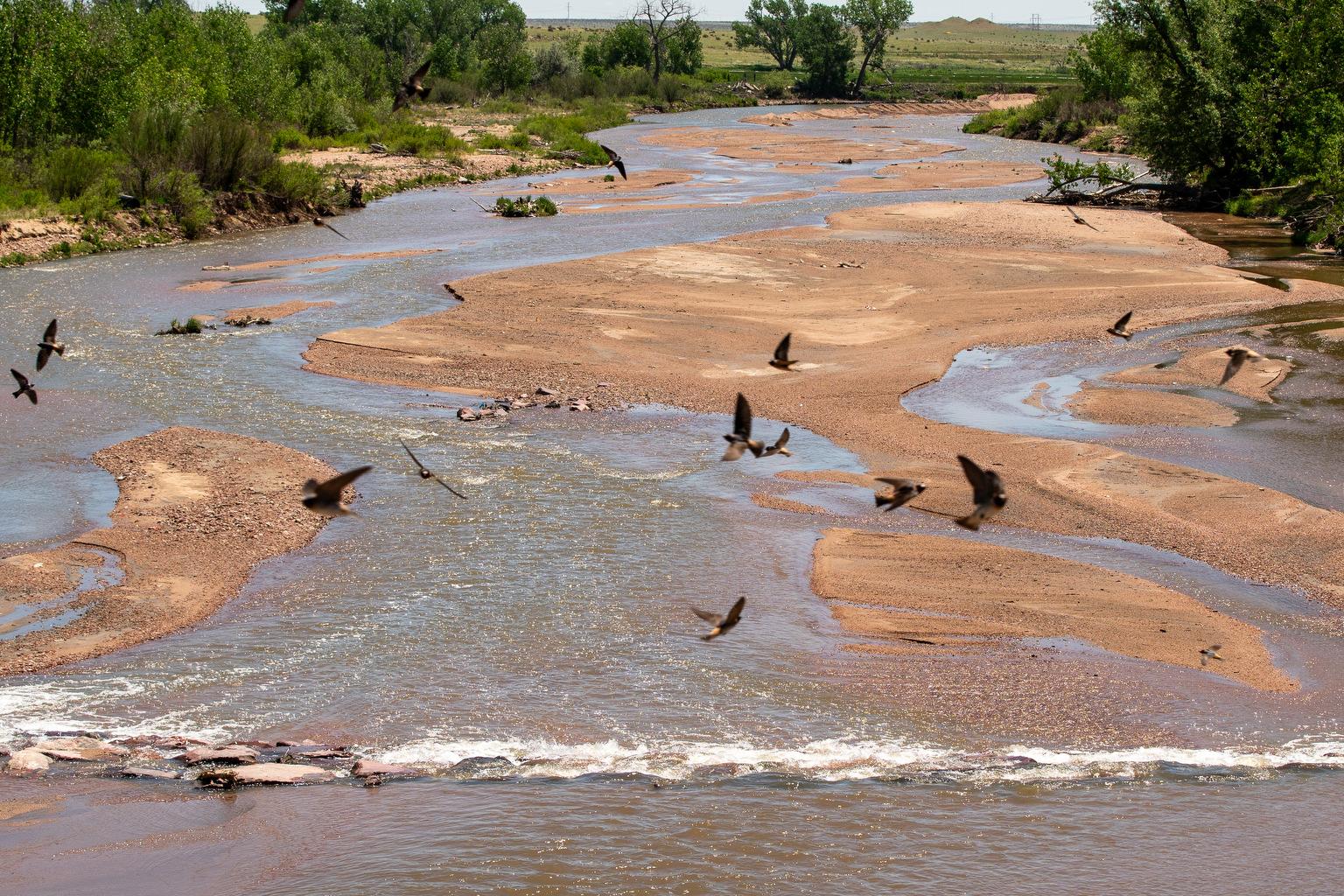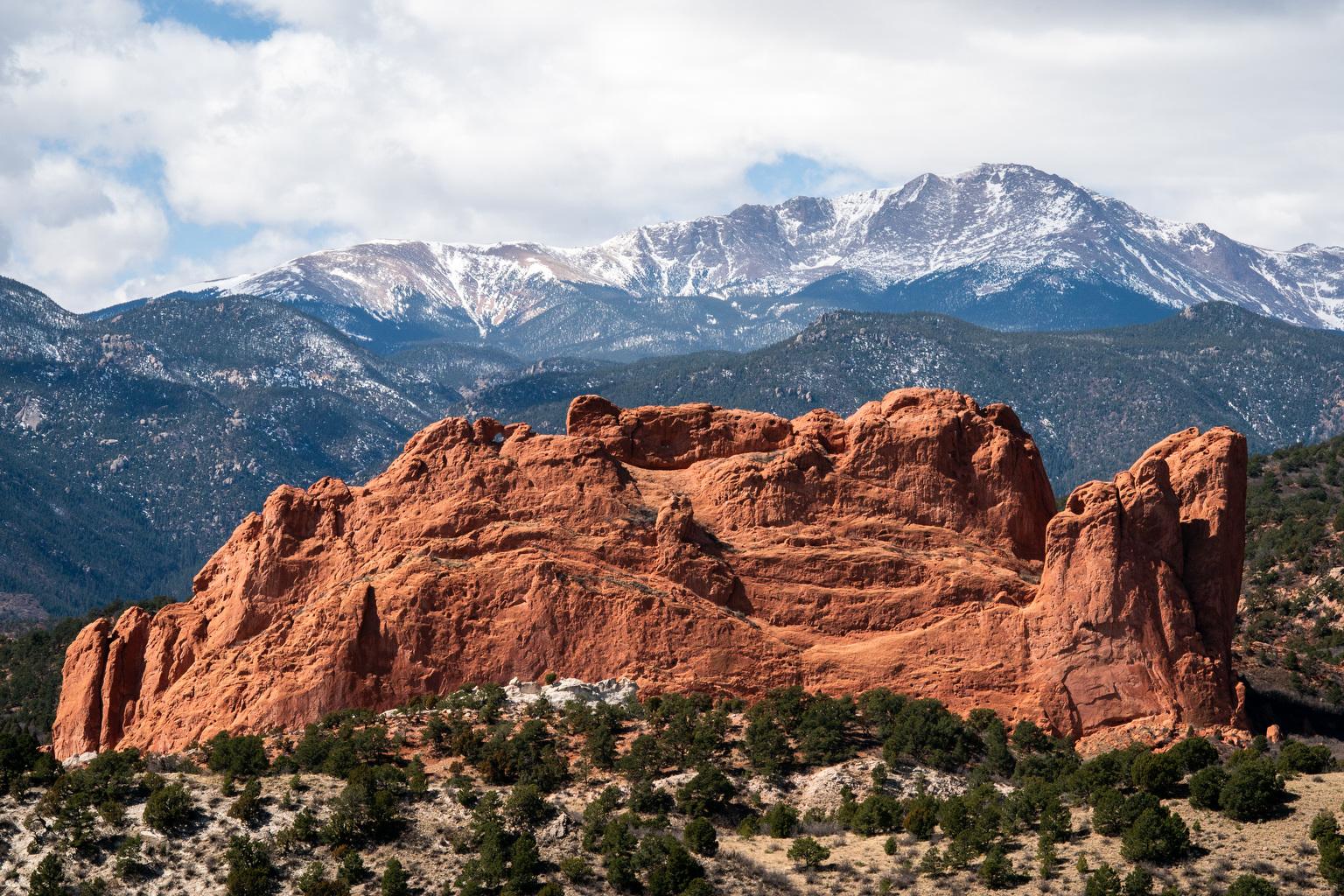
We already know this, but I'll say it anyway: Ski season in Colorado is going to look a little different this year.
The good news is that most of the time when skiing or snowboarding — coronavirus pandemic or not — you're probably already wearing a mask. The bad news is, well, Colorado ski season will not only look different in general, thanks to the coronavirus pandemic — it'll also look different from resort to resort.
While there's currently no statewide mandate on how to keep people safe during ski season, the Colorado Department of Public Health and Environment has put out guidance for ski areas to follow, in order to reopen. Using that guidance, each ski area (with assistance from their local health agency) will develop their own COVID-19 rules for visitors.
Those plans must be approved by the state before the mountain can reopen to the public. And if a ski area is part of a family of resorts (like Vail Resorts) or a pass provider (like Epic Pass), there may be even more specific rules that apply. When in doubt, check the ski area website or give them a call if you can't find answers online.
So, what should you consider before going skiing in Colorado this year?
- Figure out if you need a reservation first. Some ski areas are requiring them, some aren't — and some are giving first priority to pass holders. Skiing multiple mountains in one day? You'll need to check what the requirements on each mountain are.
- Buy your ticket in advance. Even if the resort may plan to have onsite lift ticket purchasing available, those plans could quickly change based on COVID-19 restrictions in that county, or due to exposure. Buying your ticket online or over the phone is a safer bet.
- Check out your parking and shuttle options. The Winter Park Ski Train is out of the question this year, and the Snowstang buses that serve Arapahoe Basin, Loveland and Steamboat Springs may not be operating either. Also — shuttles from parking lots may require extra time due to reduced passenger capacity and social distancing measures.
- Pack a lunch. Check the ski area's website to see what dining options are available. Capacity at cafeterias will likely be reduced, full bar service may not be available and some on-mountain dining areas may be closed. If you really need that bowl of chili instead of packing a sandwich, bring a credit card — many ski areas have resorted to cashless transactions.
- Know that you may not be able to ride the chair lift or gondola with your group. Whether you can all ride together in the same chairlift or gondola will depend on the rules of each resort. Make a plan ahead of time with your group to stay in touch.
- Mentally prepare for this year to be different. Physical distancing measures, face coverings, temperature checks, reduced Après-ski gatherings and more are all on the table. Measures will vary from resort to resort.
If you want to skip this year's season altogether, that's fine too (after all, skipping the season includes skipping sitting in I-70 ski traffic).
Colorado Ski Area And Resort Opening Dates For 2020-2021
All the dates listed are subject to change.
- Arapahoe Basin — Nov. 9
- Aspen Highlands — Dec. 12
- Aspen Mountain — Nov. 25
- Beaver Creek — Nov. 25
- Breckenridge — Nov. 13
- Buttermilk — Dec. 18
- Copper Mountain — Nov. 30
- Crested Butte — Nov. 25
- Eldora — Nov. 23
- Keystone — Nov. 6
- Loveland — Nov. 11
- Monarch — Nov. 27
- Powderhorn — Dec. 3
- Purgatory — Nov. 21
- Silverton (heli) — Nov. 25
- Silverton (guided) — Dec. 26
- Ski Cooper — Dec. 9
- Snowmass — Nov. 25
- Steamboat — Dec. 1
- Sunlight — Dec. 21
- Telluride — Nov. 28
- Vail — Nov. 20
- Winter Park — Dec. 3
- Wolf Creek — Oct. 28
- Bluebird Backcountry — Dec. 31
- Echo Mountain — Nov. 27








